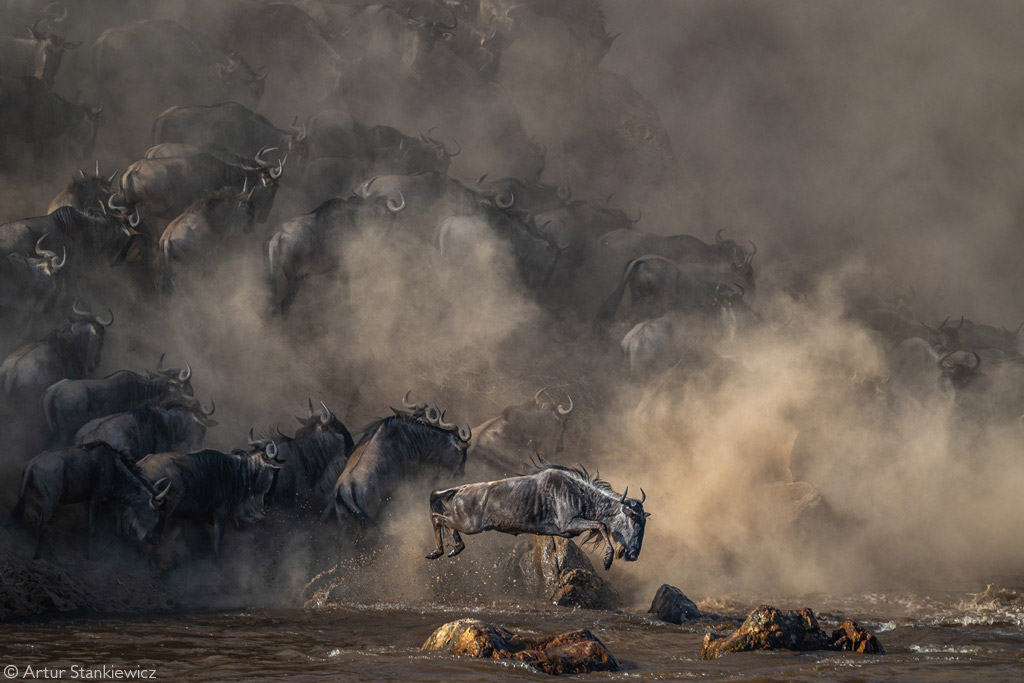
This is a copy of our weekly email newsletter. Subscribe here to receive the newsletter.
Hwange healing + kaleidoscopic chameleons + Mara madness
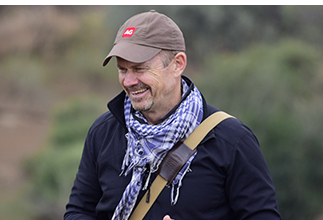
Listen up; I have something to say. My recent visit to the magnificent Maasai Mara was both epic and distressing.
Observing hordes of wildebeest and zebras crossing the Mara River again and again during the Great Wildebeest Migration, as the herds criss-cross the northern Serengeti and southern Maasai Mara, is one of Africa’s best safari experiences. It really is. One gets caught up in the drama of the moment, the chaos, the celebration of life. And death, as massive crocs and tactical lions gorge on the reckless and the unlucky.
BUT. How to manage that other great migration – that of large numbers of Homo sapiens converging on this tiny piece of Africa to witness this natural phenomenon?
At one of the crossings I witnessed last week, about 60 vehicles waited patiently for hours on both sides of the river – about 100m away – while the gnus and zebras slowly converged on their chosen crossing point. Then, when the first hooves hit the water, it was a crazy, chaotic rush as hundreds of tons of steel gunned with screaming engines to get to the best observation points. It was surreal, exhilarating and sickening as we all converged on what is only a few hundred meters of riverbank, jostled for position and somehow avoided collisions. The temptation to judge others was real. Did the fact that our guide behaved better make me less part of the problem? Did the fact that we left the grid-locked traffic jam to find calmer experiences give me the moral high ground? No, I was and am part of the problem.
Some things have changed from the old days. Now, guides have to allow the herds to commence the crossing before they approach the river bank – and officials in tiny green Jimny’s enforce slightly better behaviour. But it’s still chaotic and very stressful for the herds. It’s still not sustainable.
We, the travel industry, need to embrace this problem and find a more responsible way of showcasing this extraordinary spectacle before pressure groups and officious government agencies shut the door on the Greatest Show on Earth. Drops the mic
Keep the passion

Simon Espley – CEO, Africa Geographic
From our Editor – Taryn van Jaarsveld
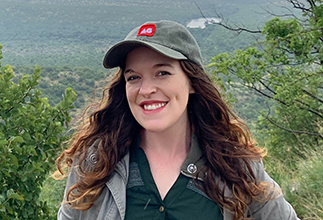
Can nature nurture? Nature – or surrounding environment – can change a person’s outlook, or even ignite evolutionary processes.
In our first story this week, we feature a superb account by Aaron Gekoski (former Photographer of the Year winner) which attests to the healing power of nature. Exploring Hwange and Matobo National Parks in Zim, Aaron found catharsis through safari.
Scientists exploring how chameleons evolve their kaleidoscopic capacity have made a fascinating observation. By studying how a group of invasive African chameleons in Hawaii adapt to local environmental factors, the scientists have captured a snapshot of the evolutionary process in action. Read more in our second story below.
Happy celebrating Africa to you all!

From our Scientific Editor – Jamie Paterson
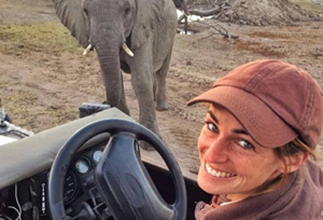
Did you know that hooved animals are born with a deciduous hoof capsule? The soft coating avoids damage to the mother’s uterus or birth canal and is called eponychium (or “foal slippers” in horses).
I ask because Care for Wild Rhino Sanctuary has released an awesome video of the birth of a rhino calf (see below). It is especially magical because the mother – Olive – was orphaned by poachers in 2013 and raised by Care for Wild Rhino Sanctuary. Every rhino calf counts, and I challenge you to watch the little creature take his first steps without your throat closing up. And if you look closely, you can see his slippers.
A remarkable achievement by the devoted staff at Care for Wild and a spark of hope for us rhino lovers. Read more about Care for Wild and their rhino birth below.

Story 1
https://africageographic.com/stories/healing-in-hwange/
HWANGE THERAPY
Can an African safari bring healing? Aaron Gekoski heads to Zimbabwe to explore Hwange & Matobo National Parks to find out
Story 2
https://africageographic.com/stories/hawaiis-conspicuous-african-chameleons/
KALEIDOSCOPIC CHAMELEONS
How did chameleons come to evolve their kaleidoscopic capacity? Escapees from the 1970s Hawaiian pet trade may hold the answer
 TRAVEL DESK UPDATES:
TRAVEL DESK UPDATES:
Did we mention that we offer eight carefully crafted ways to enjoy the awesomeness of the Mara / Serengeti wonderland? We cater for all budgets and all times of the year – from the busy prime season when the herds are crossing the Mara River to the secret season, which locals know is the best time to be there. Over and above that, you could plan your own safari using our app or ask us to stitch together your ideal safari.
• Maasai Mara migration season safari
• Serengeti great migration safari – 5 days or more
• Maasai Mara secret season
• Maasai Mara – owner-run camp – 6 days
• Maasai Mara luxury honeymoon safari
• Maasai Mara specialist photographic safari
• Serengeti great migration and big cats
Incredible video: rhino birth
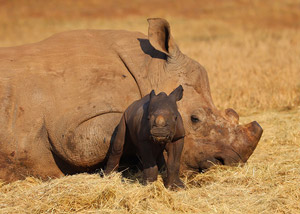 Louwhen Bowker, Care for Wild project rep, writes on the AG forum:
Louwhen Bowker, Care for Wild project rep, writes on the AG forum:
“Following our announcement of a new birth at Care for Wild Rhino Sanctuary in South Africa, we are extremely humbled and privileged to be able to share this incredible footage with the world. White rhino cow Olive gave birth to a male calf on 11 August 2022. The birth was captured on video by Olive’s guard. Despite keeping his distance, Olive remained close to her long-term protector throughout the early stages of labour and kept him close during delivery. This is an unbelievably special moment to see this precious new life take his first breaths.”
Care for Wild is an AG Project partner. See the full forum post and video here, or show your support for Care for Wild here.
 WATCH: Watch as the Nomads, a group of four young male lions, prowl the western bank of the Luangwa River in Zambia, in search of new territory. In their pursuit, they enter the territory of the powerful MK Pride. Can a hunting party of MK lionesses keep them at bay? (08:00). Click here to watch
WATCH: Watch as the Nomads, a group of four young male lions, prowl the western bank of the Luangwa River in Zambia, in search of new territory. In their pursuit, they enter the territory of the powerful MK Pride. Can a hunting party of MK lionesses keep them at bay? (08:00). Click here to watch
To comment on this story: Login (or sign up) to our app here - it's a troll-free safe place 🙂.![]()






